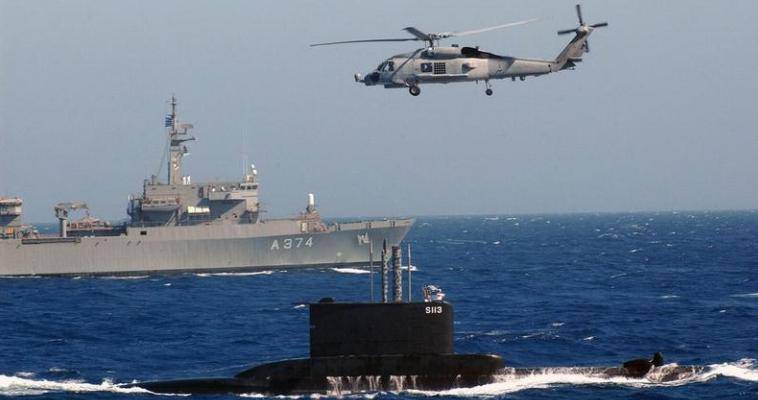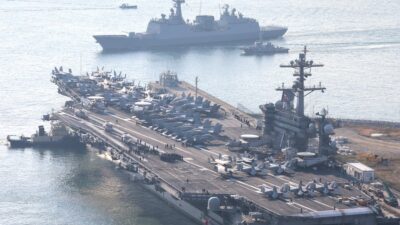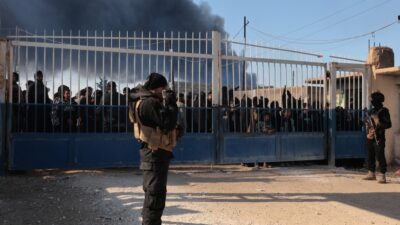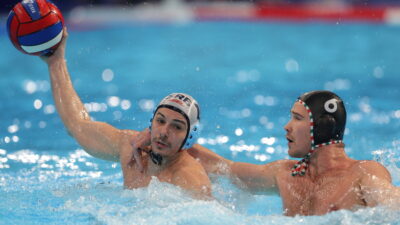Giorgos Margaritis: Power games in the Eastern Mediterranean
10/07/2020
The failure of the Arab Spring, and consequently of the Western camp in Syria, deepened the unrest in the Eastern Mediterranean and have led to a revision of strategic plans. In this context, a number of alternative policies have been tried and tested in order to create substitutes capable of responding to the strategic problem.
At the level of diplomacy, the mobilization of additional forces and the formation of alliances was the first issue. The mobilization of new forces that could fill the gap concerned – and still concerns – the non-US Western world. The aim was to mobilize NATO and EU mechanisms in the disputed zone, in a way that would build a military force capable of reliably promoting Western policies in the region.
Despite pressure from the United States, the results in this area did not seem convincing. Neither NATO nor the EU has been able to form a stable force capable of impressing enemies and friends in the Eastern Mediterranean. NATO’s numerous and persistently repeated exercises in the region are usually attended by a single-digit number of ships or aircraft, most of which come from the “willing” players in the region.
The publication of statistics, according to which 24% (!) of the activities of the Greek Navy concern “allied obligations” explains what we mean. On the other hand, it may be important to note that the presence of Canadian warships is clearly more pronounced in these activities than, for example, German or British warships. Even the countries that are willing, France for example, can hardly be convincing of their abilities.
Another aspect of activities in the diplomatic field is the creation of allied formations with a clear military orientation by the interested states in the region. There are, in fact, three such states (Israel, Cyprus and Greece), while the fourth and most important, Egypt, is permanently oriented towards internal threats and could hardly participate in permanent schemes in a credible way.
New found “allies”
This alliance construct, formed with the strong encouragement of the United States during the time of the SYRIZA-ANEL government, in Greece, is desperately trying to combine dissimilar problems, sizes and situations into a common goal. Geography dictates dissimilarity first and foremost. Although the common denominator of all three states is the need to preserve their vital “blue hinterland”, the latter is not exactly the same: the Aegean (archipelago – closed sea) is not like the Eastern Mediterranean (a relatively open sea), from whichever side one sees it.
In addition, the new found “allies/partners” are unbalanced and captive to their individual problems. Israel is a “fortress” and as in any fortress, it is mainly concerned with defending its walls (literally sometimes). Cyprus is one third occupied and is always looking anxiously at the “green line”. And Greece, in a whirlwind of problems, has increasingly more dubious possibilities.
It is characteristic that of these three countries, only Greece has something that could be perceived as an open sea fleet. These are 13 frigates rather obsolete by today’s standards (“S” types frigates are about 40 years old and MEKO class are 20-30 years old), which are practically devoid of anti-aircraft capabilities (their main anti-aircraft system ESSM has a range of 20 km, a little more than the range of their main gun). There are, of course, submarines where, as everyone knows, they are a weapon of “prohibition” and not a weapon of “domination”.
In other words, an alliance is being built with mainly military features, which, however, cannot answer the crucial strategic problem for which it is formed: ensuring the vital “blue hinterland” for the contracting countries. The joint exercises and the multifaceted contacts between governments and officials of these countries – with the steady and persistent participation of their American counterparts now – reflect intent rather than answers.
USA in the Eastern Mediterranean
In the military field, joint exercises very often have special forces as a denominator. This is a face of frustration: as everyone knows, special forces, from the time of Napoleon’s voltigeurs to the present day, can wear down an opponent, but in no way can they win a war.
The United States, as an outside stakeholder in the Eastern Mediterranean crisis, shares both concerns and frustration with stakeholders in the Eastern Mediterranean. The fact that Mr. Pyatt holds the position of US ambassador to Greece is indicative of this parameter, as he specializes in “delicate”, difficult missions.
The policy of the United States is necessarily multidimensional. On the one hand, they have engaged in a frantic activity to secure access. This is probably the “Singapore Syndrome” in a Mediterranean version. In the 1930s, the British, realizing that they did not have the financial and military power to stop the Japanese threat and coming under pressure to provide guarantees for their possessions (Australia and New Zealand), built the great naval base in Singapore. Their purpose was to frighten the Japanese and to reassure their commonwealth. In 1942, as was discovered, a base without “content” could offer very few things.
In this case, the Americans have multiplied their presence in recent years in military “facilities” and military bases in Greece. Souda has become a “state within a state”, almost as much as the British “sovereign” bases in Cyprus. The problem is that the “content” is missing. Some TF 67.3 and 67.8 aircraft (maritime reconnaissance and electronic warfare Task Group) are sometimes stationed the air base, while in the naval counterpart, in Marathi, no overcrowding is observed. Usually the awesome “aircraft carrier pier” is empty.
Political exercise
On the contrary, the Turkish navy is very active. It often conducts exercises, but also performs missions not only within the Cypriot EEZ and the Aegean, but even on the Libyan coast with the participation of a large number of warships. By bringing a large number of warships to the Aegean and the Eastern Mediterranean on an almost constant basis, Turkey is sending a clear and tough political message.
The “blue hinterland” of others is nothing but the “blue homeland” of Ankara’s leaders. In this sense, the Turkish demonstration showed in the most categorical way the failure of the plans of Athens, basically – but also of Washington and of course of Nicosia – to secure the vital issue of the “blue hinterland”. It understood the new correlations in the Aegean and the Eastern Mediterranean and registered its own capabilities, the capabilities of a regional power, in this field.
In Athens, frustration is getting closer and closer to capitulation. The possibility of error in the political, strategic, military, diplomatic choices of Greece political leadership is not considered in the slightest, nor as a possibility. Alternative plans do not seem to exist. This is not stupidity or naivete. The interests of the country’s political elites trap it in dead ends. It’s not just about national issues, it’s about any other area of politics. Only in national issues the results of such traps are felt more directly. And definitely in a much more spectacular way.





